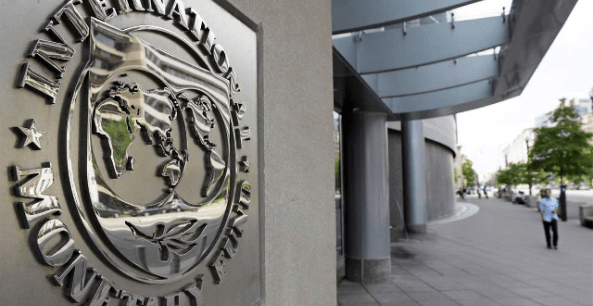The International Monetary Fund has said Nigeria may incur an expenditure of around N7trn should the existing fuel pump price cap and electricity subsidy be upheld in 2024.
The fund also stated that the current administration inherited a challenging economic situation characterised by low growth, diminished revenue collection, escalating inflation, and longstanding external imbalances, stressing that the continued capping fuel pump prices and electricity tariffs below their recovery costs could lead Nigeria to incur fiscal costs of up to three per cent of its Gross Domestic Product in 2024.
“The capping of fuel pump prices and electricity tariffs below cost recovery could have a fiscal cost of up to 3 per cent of GDP in 2024,” IMF stated in a statement following a recent visit by an IMF team led by Axel Schimmelpfennig, the IMF Mission Chief for Nigeria.
This visit, part of the 2024 Article IV Consultations, saw the team engage in discussions with key Nigerian officials in Lagos and Abuja from February 12 to February 23, 2024.
According to data from the latest GDP report by the National Bureau of Statistics, the GDP current market price for 2023 is N234.4trn and three per cent of that amount is N7.032trn.
A breakdown showed the country grew its GDP from N51.95trn in quarter one to N52.76trn in Q2, increased to N62.05trn in Q3 GDP, and N67.67trn in Q4.
The new development came weeks after the global lender expressed concerns in its Executive Board’s Post Financing Assessment that the government had capped the prices of fuel at retail stations.
The IMF said the Tinubu administration has “capped retail fuel and electricity prices” ostensibly to “ease the impact of rapidly rising inflation on living conditions, thus partially reversing the fuel subsidy removal.”
On May 29, 2023, during his swearing-in speech, President Bola Tinubu announced an end to petrol subsidy, triggering a hike in the prices of goods and services in the country.
After the removal of the petrol subsidy in May 2023, the pump price changed from N185 per litre to N400 per litre, and then to N568 per litre at NNPC fueling stations, while others currently sell above N600. It currently sells between N650 and N700 depending on the location nationwide.
The government had said the prices would fluctuate after subsidy removal from time to time but the pump price has maintained a steady rise despite the fact that the price of crude oil in the global market keeps going up and down. According to fuel marketers, a litre of the products should be sold at N1,000 or more.
The IMF report read in part, “Nigeria’s economic outlook is challenging. Economic growth strengthened in the fourth quarter, with GDP growth reaching 2.8 per cent in 2023. This falls slightly short of population growth dynamics. Improved oil production and an expected better harvest in the second half of the year are positive for 2024 GDP growth, which is projected to reach 3.2 per cent, although high inflation, naira weakness, and policy tightening will provide headwinds.
“Recent improvements in revenue collection and oil production are encouraging. Nigeria’s low revenue mobilization constrains the government’s ability to respond to shocks and promote long-term development. Non-oil revenue collection improved by 0.8 per cent of GDP in 2023, helped by naira depreciation. Oil production reached 1.65 million barrels per day in January as a result of enhanced security.”
The fund also emphasised the need for the Nigerian government to fully implement its cash transfer programme aimed at assisting vulnerable households.
IMF noted that this step is crucial before addressing the costly fuel and electricity subsidies.
According to the IMF, the established social safety net programme, designed to provide cash transfers to impoverished and vulnerable individuals, must operate at its maximum capacity. This approach ensures that economically vulnerable segments of the population remain protected while the government considers adjustments to the existing subsidy framework.
The statement added, “With about 8 per cent of Nigerians deemed food insecure, addressing rising food insecurity is the immediate policy priority. In this regard, staff welcomed the authorities’ approval of an effective and well-targeted social protection system.
“The recently approved targeted social safety net program that will provide cash transfers to vulnerable households needs to be fully implemented before the government can address costly, implicit fuel and electricity subsidies in a manner that will ensure low-income households are protected.”
The government has consistently denied it is paying fuel subsidy.
SOURCE: PUNCHNG


